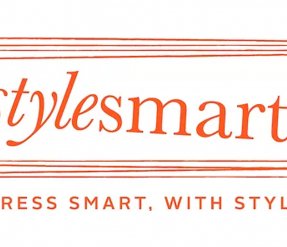The Revolt: Mirror, Mirror… What are your clothes saying about you?
By Aaron Bomba
We learned in elementary school that you shouldn’t judge a book by its cover, but, with age, we can see this is a lesson grounded in theory, not practice. Of course, you shouldn’t judge anybody, but be honest, you do. We all do. It’s a fact of life that we are all being judged the second we step into the public.
Unfortunately, somewhere along the way, after the sexual revolution and before the Bump-It, people in this country let themselves go to the dogs and what became socially acceptable to wear in public changed.
We find a concentration of badly dressed, badly groomed people on college campuses in particular; behold, America, this is the future. Stretched out, ratty t-shirts, gym shorts, yoga pants, flip flops, and greasy hair coiled and tied into submission by grimy black hair bands. You’re in college, who cares what you look like? There is no one to impress.
Let’s stop right there.
Even though your class is at 8am and you were up till 4 drinking the night before, that is no excuse to completely let yourself go when stumbling to your classes, or anywhere for that matter. Remember this, no matter how big your sun glasses, people can see you, and to be blunt, you look like hell.
Carol Davidson, AICI CID, not only recognizes this fact, she runs an image consultancy called Styleworks based in New York City which specializes in transforming professional men and women’s wardrobes and appearances into “tangible tools for success.”
“Whether we like it or not, within the first few seconds of meeting, people will assume to know all it is that they think they need to know about a person”, Davidson says. Included in this initial size-up, qualities like credibility, intelligence, and integrity are assumed based on little information. Davidson goes on to explain, “While we don’t have a choice about this, we do have a choice about the quality of impression that we choose to make.”
Our appearance, Davidson explains, makes up the majority of that first impression, so it makes sense to pay attention to the way we look as much as the way we speak and behave. This means, to most college student’s chagrin, that pajama pants are never appropriate in public. “People who do this normally say that they want to be comfortable. You can be comfortable, look stylish, and be appropriate, even if you’re running to class,” Davidson says. “I think that good habits start young. You never know who you’re going to meet along the way.”
Still, swapping good grooming for another 15 minutes of sleep is a sacrifice most college students would not be willing to make. Yet, the decision to hit the snooze on your personal style, or, as Davidson calls it, “your personal brand,” can make a huge difference after graduating and entering the professional world.
Often working with clients in transition, whether it’s a student entering the professional world or someone already in the professional world looking to be promoted, Davidson is adamant in the fact that re-inventing yourself is necessary to staying current and relevant in the job market. Davidson adds, “Clothes speak on our behalf and I guess the question to ask yourself is, ‘what do you want your clothes to say about you?’”
Davidson, whose clients include Goldman Sachs, Time Warner, and Macy’s, says “It’s easy to opt out and say, it’s vanity and it shouldn’t matter. In an ideal world, maybe it wouldn’t matter, but we have to base our actions in reality. If you opt out and don’t participate, ultimately you’re hurting yourself.”
The lesson is this, if you can comfortably sleep or workout in what you’re wearing, you need to make some changes. Start paying a bit more attention to the way you look because a dirty, unkempt appearance tells the world you’re a lazy, unorganized person. You may be busy, broke, and have better things to spend your money on than trips to the mall, but in the real world; there is no excuse to look like garbage.






